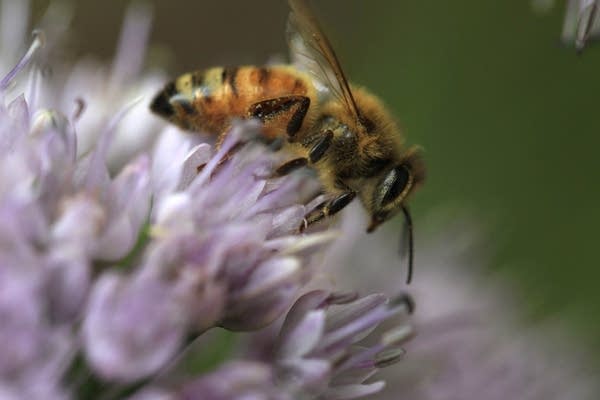Vendors stem sales of plants with toxins that hurt bees, study finds

Fewer garden plants sold by big retailers this year contain an insecticide harmful to bees.
Judy Griesedieck | For MPR News 2014
Go Deeper.
Create an account or log in to save stories.
Like this?
Thanks for liking this story! We have added it to a list of your favorite stories.


